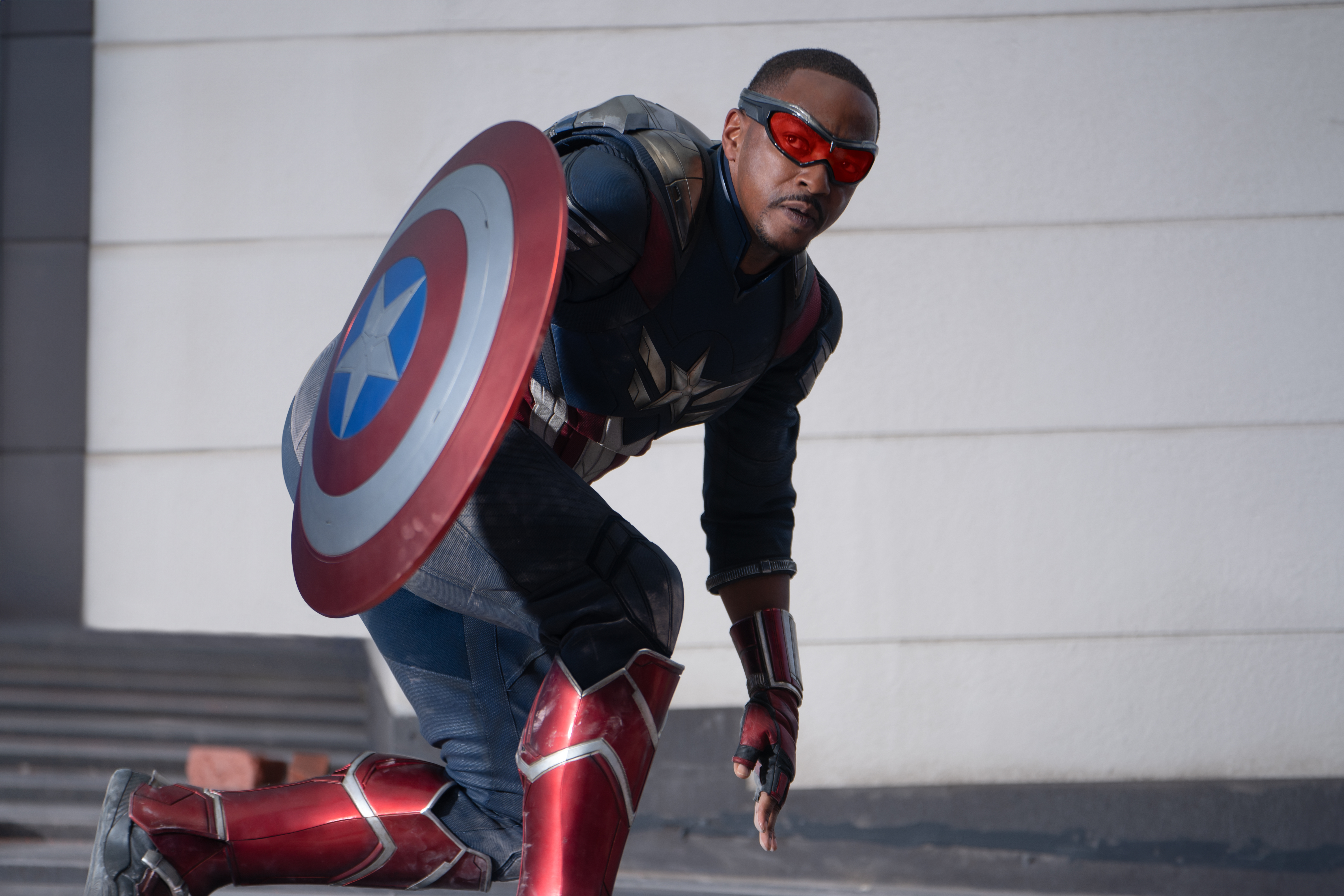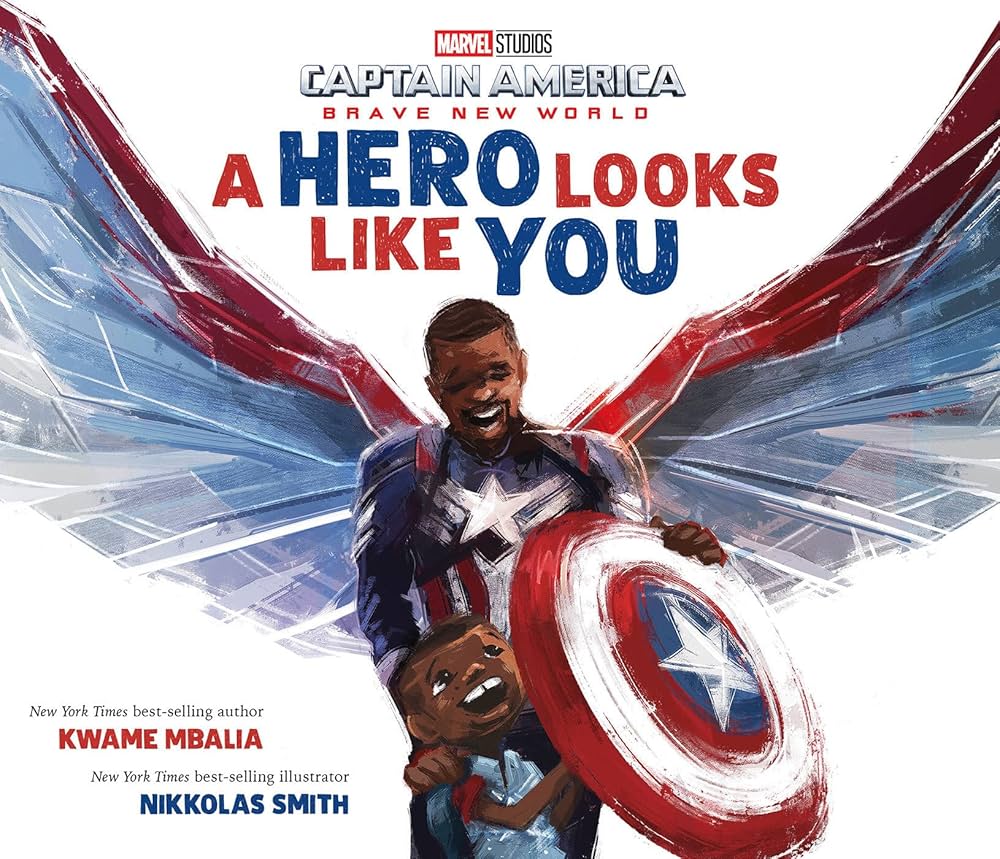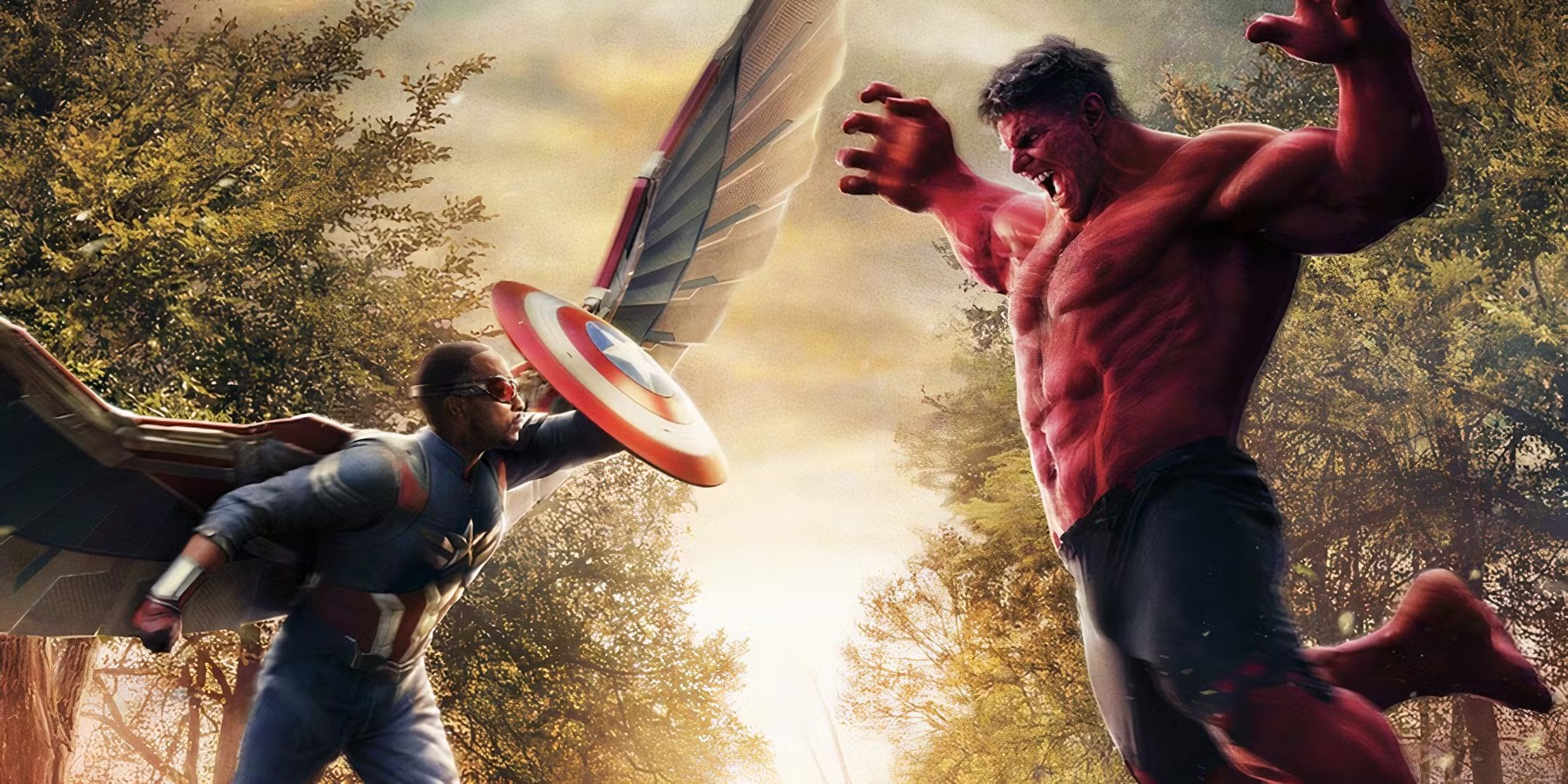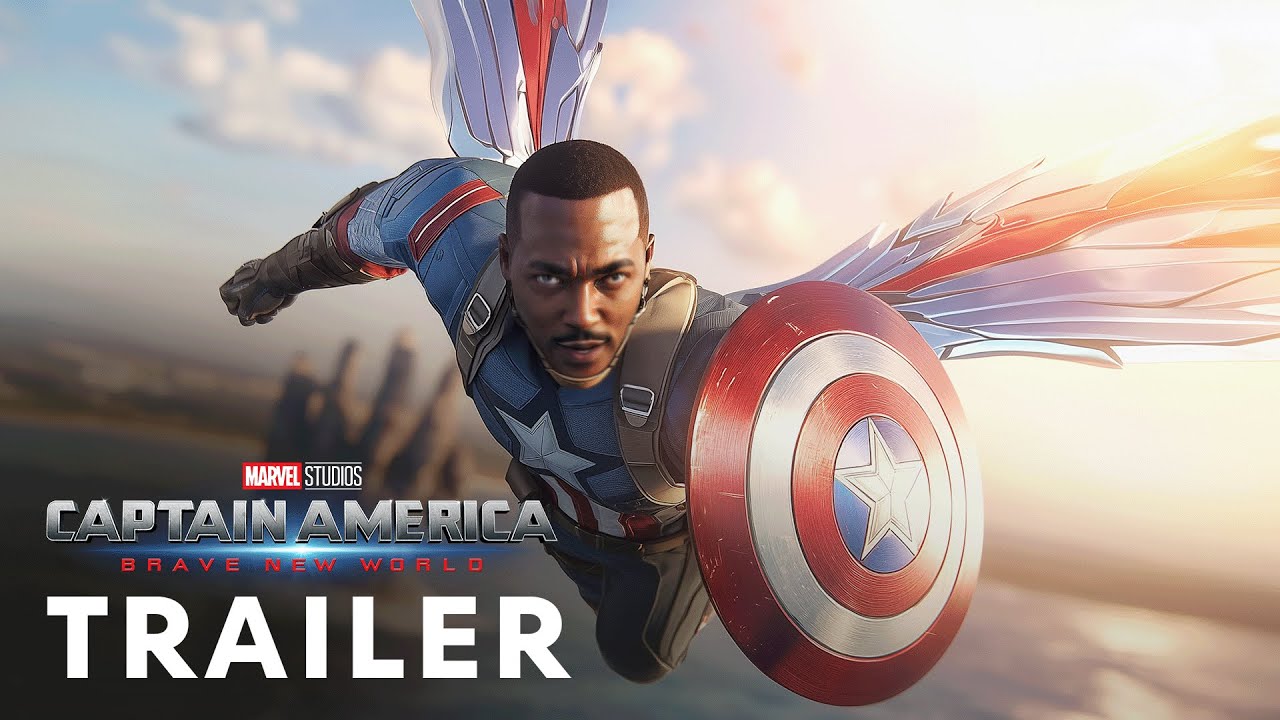Failing to explore the seismic impact of a Black man becoming Captain America was a missed opportunity which hobbled the film.

As a comic book-loving blerd who always longed to see characters with his skin tone and hair texture flying through the air with super powers, I really couldn’t wait to see a Sam Wilson get his own movie in Captain America: Brave New World.
It always stuck in my craw that Black superheroes too often were sidekicks and helpers in comic books and big films. So watching Anthony Mackie nail the progression of Wilson from Steve Rogers’ non-powered backup and battlefield counselor to an independent hero in his own right over two movies and a TV series was liberating.
Here’s how I wrote about it in describing the conclusion of The Falcon and The Winter Soldier Disney+ series for NPR: “Days after the world exhaled in relief as Derek Chauvin was found guilty of murdering George Floyd, Marvel unveiled Anthony Mackie’s Sam Wilson as the new Captain America — in the process, making a poignant argument for why a Black hero would stand up to a defend a country that often mistreats people who look just like him.”
Yes, much of that TV show dealt with some of these questions. But the TV series was about a Black man BECOMING Captain America. I was hoping to see a movie about a Black man BEING Captain America.
And given how much milage Marvel films got out of playing with the natural tension between hypocritical government leaders and the righteous values of Chris Evans’ super soldier Steve Rogers —stuff the comic books pioneered decades earlier, reflecting the nation’s post-Watergate disillusionment – I was really hyped to see how making Captain America a Black man would deepen that dichotomy.
Well, as it turns out, that didn’t really happen, this time. Because Captain America: Brave New World barely acknowledges that Sam Wilson is Black or that his race would play into any difficulty in continuing Steve Rogers’ legacy.

In the film, Wilson spends much more time fretting over whether he can fill Rogers’ shoes because he’s not an artificially amped-up super soldier, like Rogers and Sebastian Stan’s Bucky Barnes. (Though you’d hardly know it from all the action scenes where Wilson physically beats down goons, intercepts flying missiles and even battles the Red Hulk to a standstill.)
That’s not to say that Brave New World isn’t racially diverse. Wilson has an eager sidekick of color himself now — Joaquin Torres, played by Danny Ramirez, who is also called The Falcon. The aging Black super soldier Isaiah Bradley, played with a mournful dignity by Carl Lumbly, also plays a key part as the victim/patsy Cap must rescue (and, by his very history, conjures images of a superheroic version of the Tuskegee experiment). And there’s even a proud Black female Secret Service agent guarding the President who seems like she wouldn’t mind a closer relationship with Wilson, if he wasn’t so distracted by saving the world.

I don’t even agree with critics who lambasted the film, which I enjoyed. My biggest criticism of Brave New World is that it doesn’t unfold like a Black Panther-level seismic statement resetting the Marvel universe – or even a sprawling, epic adventure, like Captain America: Civil War. I knew before the movie opened, fans would be hoping for more of an event movie than the trailers indicated Marvel was going to deliver.
It’s more like a well-written TV story amped up a bit for the IMAX screen, with significant callbacks to a 20-year-old Hulk movie, and every thematic statement boldly written on the surface of its predictable-yet-enjoyable action sequences.
Given the nature of media today, I even understand why they had to give away the movie’s best twist — that Harrison Ford’s character, President Thaddeus “Thunderbolt” Ross, becomes the Red Hulk at the movie’s climax. There was likely no way to suppress news of Ford’s storyline before the movie opened and trailers featuring his metamorphosis likely helped convince more people to check out the movie in the first place.
But the unintended consequence of all is that, is you spend much of the movie distracted from its details, just trying to figure out why Ross becomes Red Hulk — which isn’t a difficult deduction. And once you have that answer, the finish of the film offers much less appeal.

Still, what disappointed me more than anything was the lack of time devoted to Wilson – or anyone else in the film – pondering exactly what it might mean that a Black man was Captain America in the first place.
One of the core ideas at the heart of Nikole Hannah-Jones’ 1619 Project is the idea that Black people have constantly helped define the real meaning of patriotism, by fighting and dying for a country which brutally oppressed them and their ancestors – while also forcing the country to be better by insisting on equality and an end to systemic oppression.
In Brave New World, Wilson faces challenges from Ross, a control freak who hates giving superheroes room to act independently. And he faces the challenge of taking on superhuman problems backed only by his training, gadgets and will. But what he doesn’t tackle – at least, not overtly in this film – is all the cognitive dissonance between being the descendants of enslaved people now asked to stand as a symbol of the country that did the enslaving.
What about Americans who will never accept Sam Wilson as Captain America because of his race? What happens if he has to act against people of color in a way that defends America but also continues its oppression? Will the new Captain America act to unwind the systemic oppression which still exists in America? Or is he too busy worrying about Red Hulk and The Leader to handle police brutality, unequal arrests and sentencing and even the exploitation and imprisonment of Isaiah Bradley for decades?
This, I fear, is what happens when conservative activists turn the “woke” into an epithet and even famously liberal Disney CEO Bob Iger talks about stepping back from culture wars as the company pulls back on DEI efforts.

Of course, the problem is that, for some people, culture wars are theoretical arguments. For others, these “culture wars” are pitched battles to tear down systemic oppression, give marginalized people the space to assert themselves in spaces traditional dominated by mainstream culture and redefine some societal problems as issues with equality.
Having a Black Captain America who isn’t invested in helping the country acknowledge its history of systemic oppression and overcome it is like having a home run hitter on your baseball team who refuses to bat cleanup – a tremendous wasted opportunity.
In this way, a Black Captain America becomes less an agent for change and more like a figurehead; an awkward, unspoken argument for the idea that the most powerful thing Wilson can do is figure out how to make the Red Hulk calm down and stop tearing up the White House.
Having Captain America face this essential social tension would also, by the way, have given the movie much more depth – made it feel more like a story that was saying something about our times, instead of a flashy collection of fight scenes and computer-generated effects wizardry. In this way, like in many instances, centering the equity message would have made the movie better – which is the best argument for doing it, in the first place.
Critics of diversity, equity and inclusion discussions – including the Trump administration – like to pretend these initiatives are about shaming white culture into giving non-white people advantages they haven’t earned and don’t deserve. But what they are really about, is forcing America to live up to its rhetoric – to create a country where systemic barriers to achievement truly have been eliminated and every citizen truly can compete on a level playing field.
Doesn’t that sound like a much better story than whatever Captain America: Brave New World actually turned out to be?